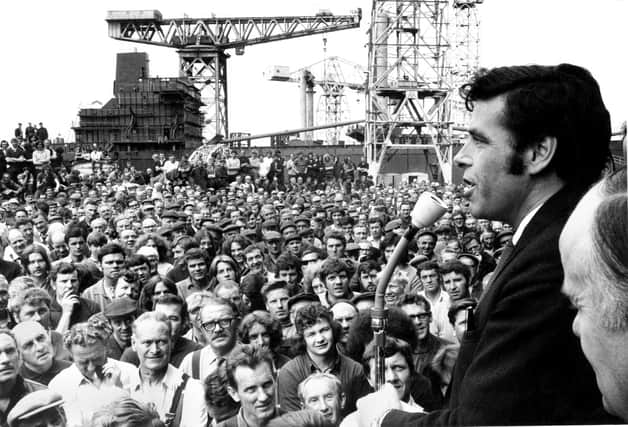Heavy industry was on the wane as UK manufacturing firms struggled to compete with developing countries in the Far East, such as China where wages were significantly lower, working hours were longer and trade unions were practically non-existent.
Deindustrialisation was a rapid process in the 1970s and it hit Scotland hard. A long list of coal mines, factories and shipyards were closed completely, while the many industries that survived the onslaught saw their operations drastically reduced.
The sea change meant labour disputes were common. A breakdown in wage negotiations between the NUM and National Coal Board triggered the 1972 UK miners strike, while pickets at Grangemouth refinery in 1974 resulted in long queues of traffic at petrol stations across the Central Belt.
Over the course of the decade, trade unionists of almost every profession from miners to journalists protested and marched regularly through the streets of Scotland’s major cities.
Rather than host a strike, in 1971, the Upper Clyde Shipbuilders staged an occupation and work-in protest in a bid to save their yard from closure. Leading the charge was trade union activist the late Jimmy Reid who made an impassioned speech to workers that would receive international acclaim and ultimately secure the yard’s future, at least in the short-term.
Strike culture culminated with the infamous Winter of Discontent during 1978-79 that was characterised by a sustained series of strikes by trade unions demanding better pay and improved working conditions.
The societal impact of the widespread strikes, which saw a multitude of essential services practically grind to a halt, was exacerbated by a bitterly harsh winter with some of the coldest temperatures in nearly 20 years.
In the cities, a new service-orientated economy began to emerge, but rural communities suffered greatly as a result of the loss of traditional industries.
Unemployment in Scotland doubled in the second half of the 1970s as the nation careered towards the Thatcher era.
Meanwhile, the UK experienced an energy crisis of epic proportions due to restrictions on the transportation and inflation of oil in 1973. In response, the Conservative government introduced a three-day week in order to conserve essential electricity supplies.
But it wasn’t all doom and gloom. The news in October 1970 that British Petroleum had discovered a vast reservoir of crude oil in the Forties field off the Aberdeen coast had a profound impact on the economy of Scotland and the UK as a whole.
The first mainland sales of Forties oil were made in 1975 and a brand new source of prosperity that would last many decades was born in the process.
Society was also becoming fairer. The Equal Pay Act 1970 demanded that women doing the same work as men were to be paid equally, while the 1975 Sex Discrimination Act saw more and more women begin to occupy job roles once dominated by men.
A message from the Editor:
Thank you for reading this article. We're more reliant on your support than ever as the shift in consumer habits brought about by coronavirus impacts our advertisers.
If you haven't already, please consider supporting our trusted, fact-checked journalism by taking out a digital subscription at https://www.scotsman.com/subscriptions.
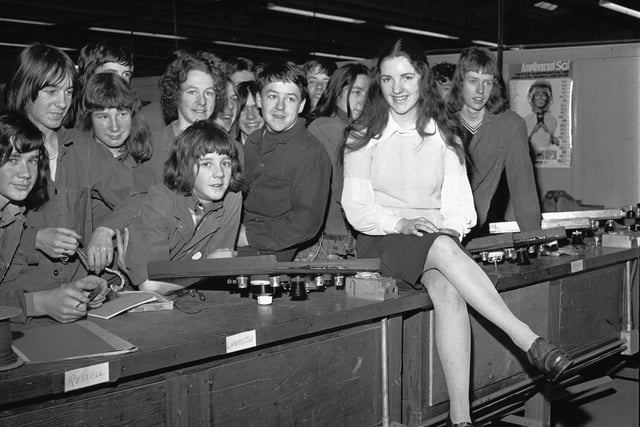
1. Gender equality?
Susan Myers, the only female apprentice electrical fitter at Rosyth dockyard in January 1973 - Susan with her male classmates. Photo: Crauford Tait
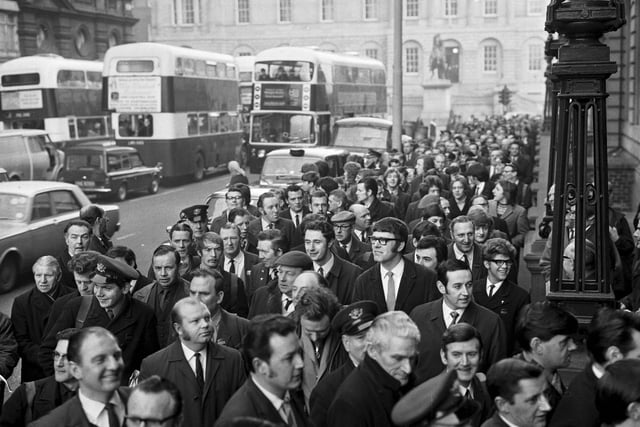
2. Postal workers post-strike
Postal workers arriving back at work at the GPO in Edinburgh after the strike in March 1971. Photo: Alan Ledgerwood
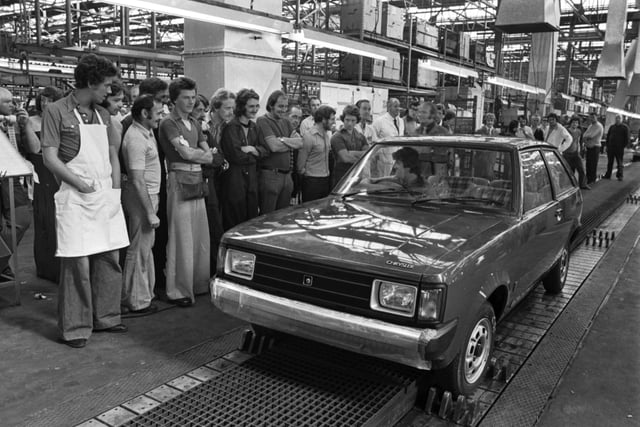
3. Sunbeam
Workers at Linwood watch as the first new Chrysler Sunbeam car rolls of the production line/assembly line in August 1977. Photo: Gordon Rule
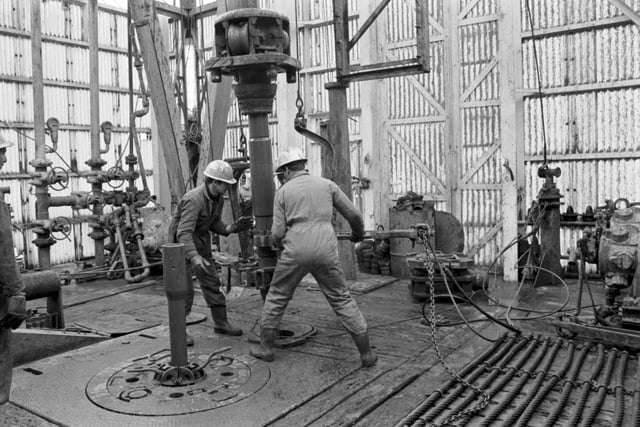
4. Drilling for oil
Men working on the drill on the Staflo oil rig in the North Sea, March 1971. Photo: Ian Porteous
